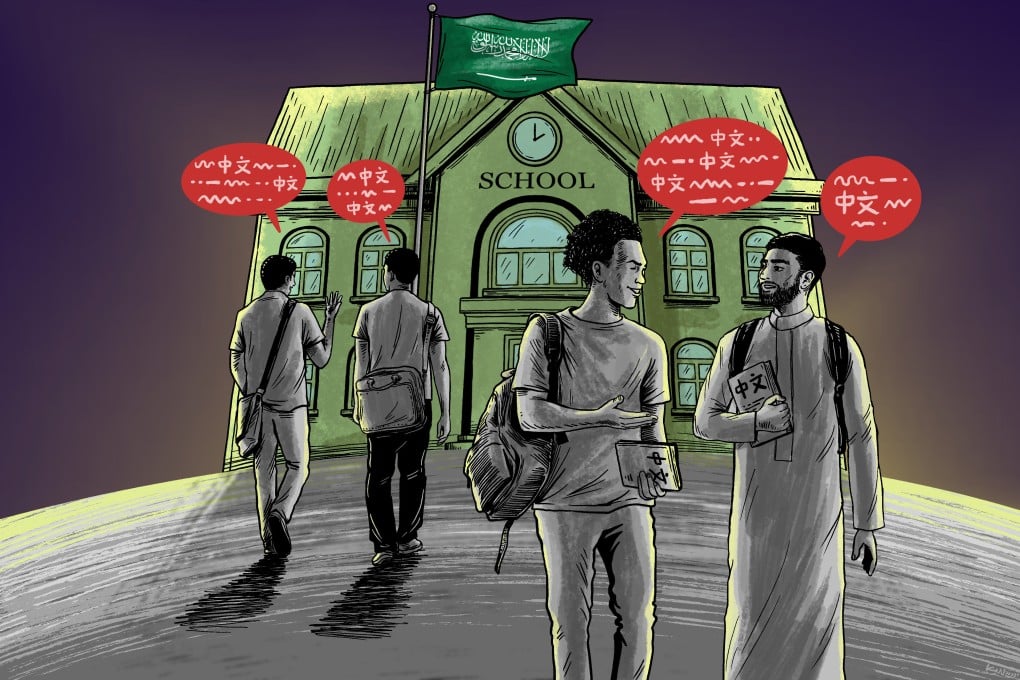Mandarin learning boom as China extends its soft power in Middle East
- Saudi Arabia is the latest country to mandate Chinese language education in schools as the region embraces Beijing links
- The rise in interest is part of Beijing’s global cultural push which suffered a setback as its relations with the US declined

While interest in learning Mandarin declines in the West, Middle Eastern children are attending classes in China’s official language as part of a geopolitical shift in a region that has been traditionally regarded as a sphere of US influence.
According to the Saudi Gazette news portal, each secondary school class will be assigned a facilitator who is expected to support and guide self-learning among the pupils.
Ma Yongliang – who opened a Chinese language institute in Riyadh in October, followed by a second centre in August at the commercial hub Jeddah – said fluency in Mandarin held broad implications in an era of geopolitical change.
“I think China is an emerging power that can hardly be overlooked and will play a crucial role in international development and reconstruction of global order,” said Ma, a former Arabic language lecturer in northwestern China’s Ningxia Hui autonomous region.
“If you want to cooperate with or engage with China, speaking Chinese is an inevitable skill.”
